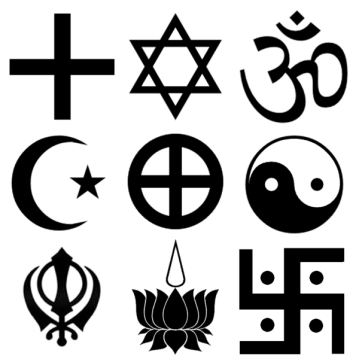
Looking back, I realize it all began in a living room some 20-plus years ago.
I was in elementary school and each week my mom would drag me to the said living room where she and the adults would sit in a quasi-circle, sing praise songs, pray for what seemed like an eternity — often in tongues — and listen to a self-proclaimed apostle’s message, clinging to each of his words as if they were pure gold.
His words were many, but the ones that ring the loudest even after all these years went something like this: All religions, even other Christian denominations, are deceived.
Only those of us in the living room had it right.
That message always troubled me, and I’ve spent my entire career fighting that inference. I’ve done it with Mother Teresa’s words always on my mind, “If we have no peace, it is because we have forgotten that we belong to each other.”
There’s far too much of this living room-theology in our world and the key to trouncing it is education, which comes in many forms including journalism, dialogue and collaboration.
It’s almost like I was made to be the editor of Spokane Faith & Values because right on our website we say, “…dialogue can lead to changed minds, better understanding, an increase in interfaith work and a more tolerant community.”
The key phrase there is “interfaith work.” But it’s not easy, especially in Spokane.
I moved here from Connecticut two years ago, where it wasn’t uncommon for a church, a synagogue and a mosque to share a city block. It was a religion reporters dream.
It’s no secret that Spokane lacks diversity, in a variety of ways. Evangelicals and Catholics are neck-in-neck in leading the religious demographics here, according to The Association for Data Religion Archives. Everyone else is small potatoes. Less than 300 Bahai’s live here, less than 1,000 Jews, less than 500 Orthodox, about 100 Sikhs — you get the picture.
Spokane might not be as religiously diverse as Connecticut, but there are lots of faith groups in this city and we need to be more intentional about coming together and learning about each other — both our similarities and our differences. That’s the first step in interfaith work.
I’ve been both amazed and disappointed in the interfaith efforts I’ve seen here. Amazed because of what I’ve witnessed through Spokane Faith & Values where almost 50 different voices are conversing — online and off — about moral and ethical issues. Disappointed because there are still numerous faith groups who refuse to join this crucial conversation.
My hope in 2014 is that more Spokanites will acknowledge the need to learn about one another, will come to the table, so we can really begin to transform this community. And to those of you reading this: thank you for your open mind and for your thirst for understanding.
Join us for our next Coffee Talk at 10 a.m., Jan. 4 at Indaba Coffee for discussion on the “Challenges and Importance of Interfaith Work in Spokane.”







Your a good woman, doing good work in a good city, good fruit is happening.
Ah thanks Eric!
The United States of America is the largest, oldest, most diverse pluralistic experiment on earth. Many nations are counting on our failure as a society to substantiate their own governing ideals. America’s governing ideal is an ‘ideal between ideals’ compared to nations who impose one particular ideal upon all citizenry. This makes America’s challenge unique as a cohesive society.
As Boston proved, America has come a long way since 9-11. And yet, WE have a long way to go. We cannot afford to wait for an attack to be our uniting cause. Today, in our daily lives, we can each participate in strengthening the fabric of America’s most cherished values. EACH of us can actively build upon the solidarity of shared ideals between diverse ideals ~ and shared community between diverse communities ~ by joining the growing, respectful, FAVS conversation!
I view FAVS as a modern culmination of three of our most basic rights in America: freedoms of religion, speech and press. As such, OUR participation in FAVS has potential to bring focus, attention and much needed action to some of our greater community’s most difficult challenges. Are WE up to it?
Much like the reflection of common bonds within our families, neighborhoods and faith communities, Spokane is a community within larger state and national communities. The principles of solidarity in each are quite similar. Where Spokane lacks numbers representing categorical diversity, She can make up for in the expression of common initiative.
Spokane FAVS is a community between communities.
Only through learning about our differences can we strengthen the bonds between similarities.
How can any true community of faith in America choose not to participate? 🙂
Well said Riff!
Amen! 🙂